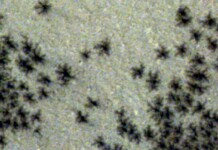Do you like to unwind with a glass of red wine after a stressful day? Don’t give alcohol all the credit.
New research has revealed that the plant compound resveratrol, which is found in red wine, displays anti-stress effects by blocking the expression of an enzyme related to the control of stress in the brain, according to study that was led by the University at Buffalo.
The findings of the study, which was published in the journal Neuropharmacology, shed light onto how resveratrol impacts neurological processes.
“Resveratrol may be an effective alternative to drugs for treating patients suffering from depression and anxiety disorders,” says Dr. Ying Xu, co-lead author and research associate professor in the UB School of Pharmacy and Pharmaceutical Sciences.
RELATED: Managing Your Gut Bacteria Shown to Alleviate Anxiety, Says New Research
Resveratrol, which has been linked to a number of health benefits, is a compound found in the skin and seeds of grapes and berries. While research has identified resveratrol to have antidepressant effects, the compound’s relationship to phosphodiesterase 4 (PDE4), an enzyme influenced by the stress hormone corticosterone, was unknown.
Corticosterone regulates the body’s response to stress. Too much stress, however, can lead to excessive amounts of the hormone circulating in the brain and, ultimately, the development of depression or other mental disorders.
These unknown physiological relationships make drug therapy complex. Current antidepressants instead focus on serotonin or noradrenaline function in the brain, but only one-third of patients with depression enter full remission in response to these medications, says Xu.
CHECK OUT: Stressed? New Study Says You Simply Need a 20-Minute ‘Nature Pill’
In a study on mice, researchers revealed that PDE4 causes depression-and anxiety-like behavior and is induced by excessive amounts of corticosterone. The enzyme lowers cyclic adenosine monophosphate—a messenger molecule that signals physiological changes such as cell division, change, migration and death—in the body, leading to physical alterations in the brain.
Resveratrol displayed neuroprotective effects against corticosterone by inhibiting the expression of PDE4. The research lays the groundwork for the use of the compound in novel antidepressants.
Although red wine contains resveratrol, consumption of alcohol carries various health risks, including addiction. However, the grape skin compound is available as a supplement.
Reprinted from the University at Buffalo
Have A Toast To The Good News By Sharing It With Your Friends On Social Media…




















